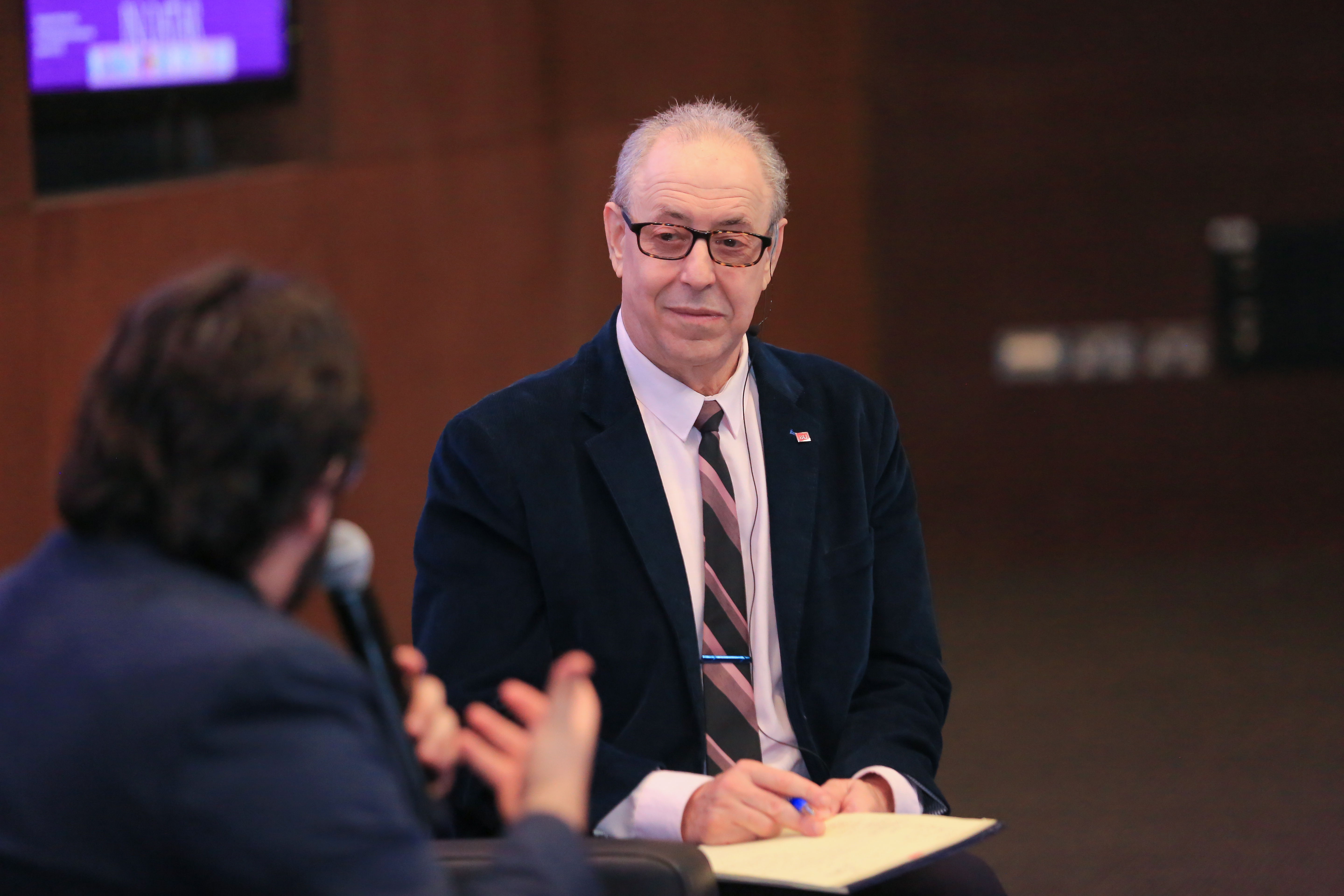James Katz Discusses Trajectory of Mobile Technology at NU-Q
The efficiency and convenience that automation provides modern society also raises concerns about its ethical and social implications. James E. Katz, a Boston University professor and expert in new and emerging media, spoke to the NU-Q community about the nature of this dynamic and weighed in on the debate.
Katz began the discussion, which was moderated by Eddy Borges-Rey, associate professor at NU-Q, with his observations on the two prevailing yet contradictory aspects of mobile communications. On the one hand, he explains, technologies have transformed peoples’ orientation toward social reality by placing them in perpetual contact with their surroundings and developing the need to always be in touch.
“But on the other hand,” he observed, “it puts us in a bit of a dynamic situation where people who were absent in a sense become present in those interactions when we talk to them on the phone, and people who were with us in the present somehow are pushed out.”
This willingness to be interrupted by mobile phones, according to Katz, is a diminishment not only of others but also of our cognitive abilities with long-term psychological ramifications associated with the rising levels of depression and anxiety in modern society.
Amidst growing reservations about the ethics of artificial intelligence, Katz presented an optimistic view supported by examples highlighting the advantages of the technology relative to its shortcomings.
“We want to not get carried away with what we think AI can do because there are real limits,” he suggested, arguing that the competitive advantage of AI is invariably counteracted by the creative efforts of humans and the fact that they are its engineers. “Ultimately there’s a person behind every algorithm and there’s a person behind every decision that is made.”
The event was followed by a Q&A in which Katz was asked about the future of journalism. Katz expressed the view that the “creative destruction” of the field caused by technology has made computer competence and media literacy indispensable qualifications for aspiring journalists.
“And yet still,” he added, “having a strategic view, being nimble in your approach, asking the right questions -- these are things that have always been valuable, and perhaps even more valuable in today’s environment.”
The discussion provided the speaker with an opportunity to engage with NU-Q faculty, staff, and students on the topic of emerging technology and offer his final remarks about its current and future trends.
“The biggest opportunity is to use these technologies in a way that fulfill our personal need,” Katz said. “The customization, the individual development, the pursuit of specific, concrete, often very narrow interests and finding others who share those interests is one of the most attractive promises of the direction of technology.”
Katz is the Feld Professor of Emerging Media at Boston University’s College of Communication, where he also directs the Division of Emerging Media Studies. His most recent book is Journalism and the Search for Truth in an Age of Social Media.
